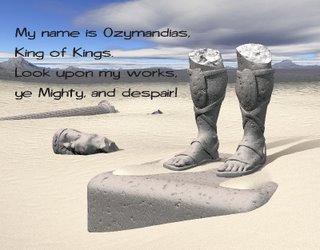About the Poet: William Shakespeare who was born on April 23, 1564; in Stratford-upon-Avon was an English poet, playwright, and actor, extensively looked upon as the supreme writer in the English language and the world’s outstanding dramatist. He is often called national poet of England and the “Bard of Avon”. His existing works, including some group effort, consist of about 38 plays, 154 sonnets, two long narrative poems, and a few other verses, of which the composition of some is ambiguous. His plays have been converted into every major living language and are performed more often than those of any other dramatist.
Shakespeare made the greater part of his known work somewhere around 1589 and 1613. His initial plays were predominantly comedies and histories and these works stay viewed as a percentage of the best work created in these classes. He then profoundly composed tragedies until around 1608, including Hamlet, King Lear, Othello, and Macbeth. These are considered as a part of the finest works in the English dialect. In his last stage, he composed tragicomedies, otherwise called feelings, and teamed up with different writers.
About the Poem: “Not Marble Nor The Gilded Monuments” is the 55th of Shakespeare’s 154 Sonnets. Sonnet 55 is one of the best and most critically admired sonnets of the 154 sonnets written by the English scriptwriter and bard William Shakespeare. It is an associate of the Fair Youth sequence, in which the poet articulates his love towards a young man. According to many scholars, sonnet 55 is a poem about time and immortalization. The speaker claims that his dearly loved will wear out this world to the ending fate. The speaker’s poem won’t last much compared to his favourite, even though his beloved is immortalised in the poem. This abides by to a larger theme of giving and possessing that runs through many of Shakespeare’s sonnets. Sonnet 55, one of Shakespeare’s most famous verses, asserts the immortality of the poet’s sonnets to withstand the forces of decay over time.
Annotations/Meaning of Nor Marble Nor the Gilded Monuments by William Shakespeare
The poet starts out strong, declaring that his poetry is both defence and more long-lasting than all those fancy funeral monuments of dead rulers. Monuments, meaning the statues and art decorating rich graves, make it clear that these princes are now past tense, while marble and gilded strengthens the prosperity of these types. Princes, here doesn’t just mean the son of ruling kings. It is a more general word that refers to every kind of ruler, including queens, dukes, and duchesses.
This sonnet of poetic thought is immaterial. It is not made of anything and therefore can never be destroyed.
In the next part the poet says that Marble and monuments are going to topple, but this young man is going to stay bright and beautiful, safe in the house of Shakespeare’s sonnets. Shakespeare increases the brightness of these lines by comparing it with another scene of time’s destruction.
In the next stanza, the poet slope up the imagery from matter getting abandoned by time to total destruction by war. But, instead of focusing on fierceness against actual people the speaker emphases on violence against art. He cautions that statues will be toppled and fights will smash up the masonry. What he describes is a smash-and-burn, mega-wreck of a war that is more about abolishing a culture than about killing soldiers in a field.
The speaker negates that the sword of war and fire won’t be able to cut or scorch the memory of his beloved. The reciter seems to suggest that these lines are powerful and vivid enough to keep this young man alive, through wars and fire and many long centuries.
The young man confronts death and hatred head on. In fact, it is almost as if he is stepping out of the poem to meet them. This sonnet has declared war on war and death on death. The narrator here doesn’t mean that enmity is some kind of unaware teenager, completely unconcerned with the outside world. What it is ignorant to is human life and art. In other words, it is blind to the beauty and worth of these things and just wants to knock them down. If this enmity is all-oblivious, then, it supplements another layer of devastation to this terrifying vision: not only will everything be abandoned; it will also be totally over and done.
Basically, because of this complimentary sonnet, the charming subject will enjoy eternal life and praise as long as this sonnet survives. Everyone will praise him until the end of the world. The speaker is definitely not shy about calculating how many people will end up reading his poem. And given the determined popularity of Shakespeare’s sonnets, it turns out his pride was spot on.
The praise contained in these stanzas, or rooms, is transferred into other rooms, namely the eyes of readers as soon as they recite the sonnet. All future generations of the world will in due course wear down the world until it breakdowns in a heap like a dashed swell. Just as this sonnet makes sure the beloved will escape war and death, it also defends him from the long and boring wasting-away of the world itself.
The orator sums things up in a modest assertion: until he’s resurrected at the final judgment, the beloved will live in this sonnet and in the loving eyes of all who read it.
Suggested Reading: Not Marble Nor the Gilded Monuments Summary by William Shakespeare in Hindi
Some online learning platforms provide certifications, while others are designed to simply grow your skills in your personal and professional life. Including Masterclass and Coursera, here are our recommendations for the best online learning platforms you can sign up for today.
The 7 Best Online Learning Platforms of 2022
- Best Overall: Coursera
- Best for Niche Topics: Udemy
- Best for Creative Fields: Skillshare
- Best for Celebrity Lessons: MasterClass
- Best for STEM: EdX
- Best for Career Building: Udacity
- Best for Data Learning: Pluralsight













Way of approach towards a question is really praiseworthy.. may I have d critical appreciation of Shakespeare’s sonnet no 73?